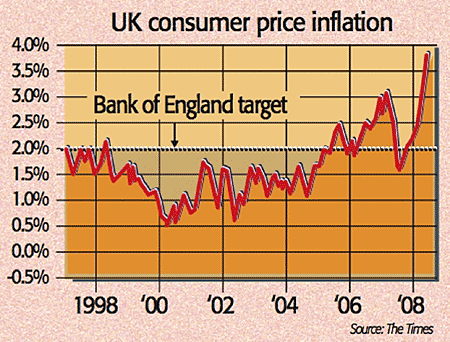Get the latest financial news, insights and expert analysis from our award-winning MoneyWeek team, to help you understand what really matters when it comes to your finances.
You are now subscribed
Your newsletter sign-up was successful
Want to add more newsletters?

Twice daily
MoneyWeek
Get the latest financial news, insights and expert analysis from our award-winning MoneyWeek team, to help you understand what really matters when it comes to your finances.

Four times a week
Look After My Bills
Sign up to our free money-saving newsletter, filled with the latest news and expert advice to help you find the best tips and deals for managing your bills. Start saving today!
We're back in "panic mode", said Marie-Pierre Peillon of Groupama Asset Management. Stockmarkets slumped this week as concern mounted over the outlook for the US financial system and the wider economy. US producer and consumer-price inflation reached 27-year and 17-year highs of of 9.2% and 5% in June. Retail sales barely grew, suggesting that the boost from tax rebates is fading and the consumption outlook is "incredibly grim", as Capital Economics put it.
From bad to worse in Britain
Here, too, pessimism has "really snowballed", as William Strazullo of Bell Curve Trading put it. In June, like-for-like retail sales fell by an annual 0.4%. Unemployment claims notched up their biggest rise since 1992 last month, while the housing market remains grim, with the interest rate on a two-year fixed home loan at a seven-year high and transactions at a record low, according to the latest RICS survey.
But even though Britain is "probably slipping into recession" now, as Michael Saunders of Citigroup put it, hopes of a near-term rate cut have been "killed off" by June's "ghastly inflation figures", said David Wighton in The Times. A rate cut would hardly help much anyway, since banks remain nervous and short of cash and continue to rein in lending.
MoneyWeek
Subscribe to MoneyWeek today and get your first six magazine issues absolutely FREE

Sign up to Money Morning
Don't miss the latest investment and personal finances news, market analysis, plus money-saving tips with our free twice-daily newsletter
Don't miss the latest investment and personal finances news, market analysis, plus money-saving tips with our free twice-daily newsletter

Consumer price inflation jumped to 3.8% from May's 3.3%, with food inflation reaching double digits. Producer price inflation hit 10% for the first time in 20 years. Slowing consumption seems likely to force retailers to absorb much of the rise in producer prices over the past two years, said Capital Economics, but the Bank of England "will be concerned that the sheer scale" of the rise in costs means that some of it will find its way onto the high street". Another worry is that "holding the line on pay deals will become increasingly difficult", said Alex Brummer in the Daily Mail.
More misery ahead for banks
As the economy weakens further, so do the prospects for the banking sector. Banks are having trouble raising capital, while the seized-up financial system has undermined housing and construction, which will feed back into "more bad debts and more strain on banks", said Ruth Sunderland in The Observer. According to Leigh Goodwin of Fox-Pitt Kelton, UK defaults on both commercial loans and mortgages are still at the bottom of the cycle, and he estimates that the likely impending rise in mortgage defaults would wipe out most of the banks' profit on mortgage business. Alliance & Leicester, buffeted by its UK mortgage exposure and dependence on wholesale funding, "sees no end to the banking crisis", said Jeremy Warner in The Independent, which is why it has agreed to be taken over by Spain's Santander. Banking regulators now "have one less bank to worry about".
Get the latest financial news, insights and expert analysis from our award-winning MoneyWeek team, to help you understand what really matters when it comes to your finances.
MoneyWeek is written by a team of experienced and award-winning journalists, plus expert columnists. As well as daily digital news and features, MoneyWeek also publishes a weekly magazine, covering investing and personal finance. From share tips, pensions, gold to practical investment tips - we provide a round-up to help you make money and keep it.
-
 Should you buy an active ETF?
Should you buy an active ETF?ETFs are often mischaracterised as passive products, but they can be a convenient way to add active management to your portfolio
-
 Power up your pension before 5 April – easy ways to save before the tax year end
Power up your pension before 5 April – easy ways to save before the tax year endWith the end of the tax year looming, pension savers currently have a window to review and maximise what’s going into their retirement funds – we look at how

